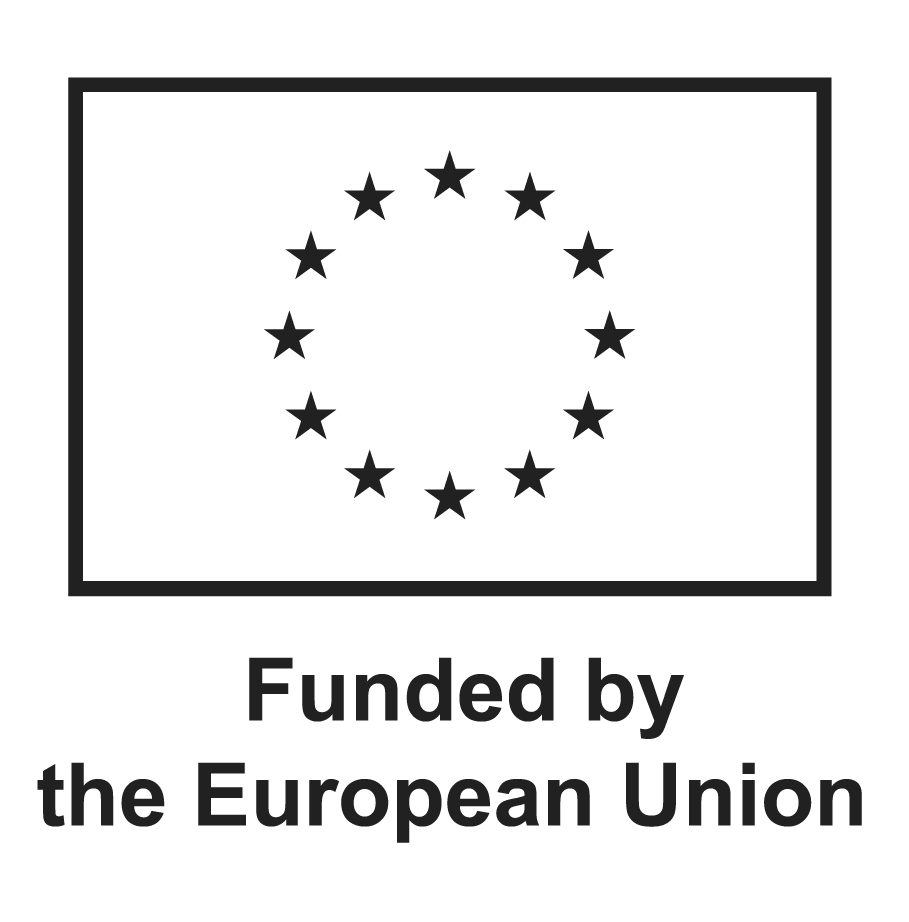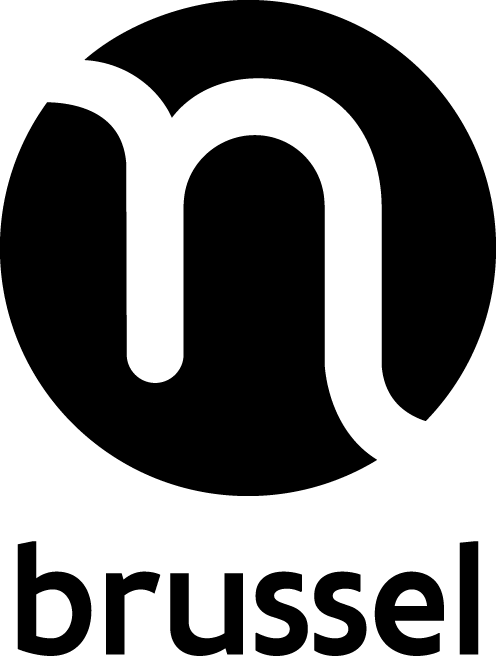
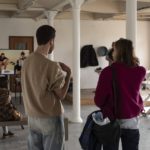
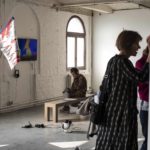
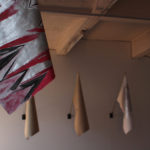
Lucie Vitková‘s Portraying the Cityscape portrays parts of Brussels as well as its people. During her one month Q-O2 Interfaces residency at MAAC, she used different media to dig deeper into the surrounding neighbourhood, met lots of new people, and invited many of them to participate in the project. She created over fifty graphic scores, made with make-up such as lipstick, eye shadow, eye pencils etc., based on which people could play, dance or write poems. The video presents various interpretations. During these sessions, Vítková wrote down new techniques which grew out of the collaborations. From time to time she played these materials in the street in front of the gallery, so people passing by could listen.
Featuring: Fhun Gao, Annalena Fröhlich, Julia Reist, Paulo Dantas, Alice Pamuk, David Alonso Morillo, Raphael Malfliet, Ian Mikyska, Haruhiko Okabe, Alhadi Adam Agabeldour, Dagobert Macib, Steven Jouwersma, Signe Boe, Lucie Vítková
Alice Pamuk has developed a sound installation Multiples, in which short phrases of pop music are looped and broadcast in the space. The proposal arose out of several years of research around pop music (including an earlier project which involved analysing interviews with American rappers and hip hop producers). Despite this fascination for pop music, Alice Pamuk never trained as a musician and sees herself as very much outside the tradition. She uses her lack of musical literacy as a tool to provoke contact with people from other musical backgrounds—both a trained music arranger and a pop singer from The Voice Belgium. The original phrases of pop music have been filtered both through Pamuk’s own skills and interests and those of her collaborators, resulting in a different kind of material which has been displaced from its original context.
The point of departure for Melissa E. Logan‘s Split Sheets by University of Craft Action Thought is a symposium entitled From Split Sheets to the Streets which took place in Brussels in the context of a residency at Q-O2 workspace. The presentations were by artists, cultural thinkers, philosophers, and share culture practitioners: Femke Snelting, ooooo, Yoni Van Den Eede, Prodromos Tsiavos, Matthias Hornschuh, Christian von Borries, and moderator Tamar Shafrir.
Video work from the symposium, including canvas, rope, wood, is set to AI-generated copyright free music which Melissa E. Logan has made with an app built primarily for advertising and film music.
Justin Bennett‘s project Multiplicity—a spectral analysis of Brussels began during a residency at Overtoon in Brussels in 2017. Justin Bennett decided to focus on the idea of acoustic territories. Right from the start the idea was to produce an audio walk, but the complexity of the city proved very distracting. He spent time going for long walks, listening through DIY acoustic filters, analysing siren sounds and making a sculpture from broken brass instruments. Q-O2 encouraged the artist and hosted his research in 2018 and 2019.
Although spectral analysis suggests a scientific approach, Multiplicity is a multiplexed wild ghost chase through the urban fabric of the capital of Europe. A mashup of field recordings, sonic experiments, observations, theo- retical and utopian texts, and conflicting multi-lingual in- structions guide us through territories defined by language, politics, urbanism and sound.
→ SATURDAY 4/5, 11h from Q-O2 starts Bennett’s guided soundwalk.
Multiplicity is a co-production of Q-O2, Overtoon, Jubilee and Soundtrackcity.
Benny Nemerofsky Ramsay presents The Return: The cry irrupts into the periphery of your hearing, on the border of your awareness of the city’s cluttered acous- tic environment. Your ears are inured to these kinds of sonic emergencies in Brussels, the City of Sirens, so it takes a while to even register the alarm that is gradually getting louder somewhere in the distance. There is something melancholic, something anachronistic about the sound, like an air raid siren from war times, a sound from your memories. But then from within the rising and falling of the siren you discern the trembling of a human voice. This emergency is coming from a throat, a boy, a changeling at the interstice of human and machine, adult and child. Just at the moment when the siren’s call reveals itself to be human, it disappears, burning itself out in a final, quivering shriek.
Under the synonym of Mr Tuttle, Berlin-based sound artist Klaas Hübner spent one month working in Brussels as a repairman, offering free repairs of any kind to anyone. He collected recordings and objects from the repairs and assembled them into audio sculptures that give an insight into his endeavours. The work is called A Pipe of a Different Colour.
“Molenbeek is a hellhole. One of the scariest and most dangerous places in Brussels. ”These are not the words of the artist, but a paraphrase of what has been said in the international media and by the current American president.
Molenbeek could be this hellhole, but is also the place where Q-O2 is located. Wederik De Backer did research into the question of what the sound of danger and fear means for people from around Molenbeek. Through co-creation and sonic research, he has created a sound walk Angst Walk, pinpointing the places where inhabitants fears are most prominently represented.
Vernissage 25/4 18h with interventions by ooooo and Lucie Vítková.
The festival was realized in the framework of the Interfaces project, and co-funded by the Creative Europe Programme of the European Union.



 Sebastian Dingens - WALKS
Sebastian Dingens - WALKS

 Pavel Tchikov 29/11/23
Pavel Tchikov 29/11/23

 Nika Son - Scatter
Nika Son - Scatter
